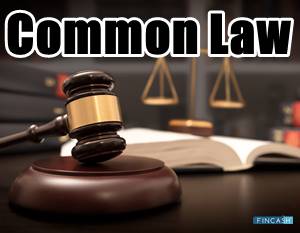
Table of Contents
What is Common Law?
Common law meaning can be defined as the set of unwritten laws and regulations that outline the legal standards set by the courts. The common law has a significant impact on decision-making procedure, where people are unable to make decisions or get any result from the existing legal rules. The common law system gained immense popularity from the British tradition. The law is extensively practiced and followed in India, New Zealand, Hong Kong, Canada, Australia, United Kingdom, and other countries.

Commonly referred to as case law, common law is based on judicial decisions, as it doesn’t have any legal code that you could follow to resolve any case. The judge who manages such a case is in charge of determining which pattern is applicable to the case at hand. The patterns set by the higher court in your country will be followed by the district and lower-level courts.
This unique approach is used to establish a sense of stability in the justice system. While this is the common approach followed globally, some lower courts may choose to avoid these standards if they feel outdated or the current case they are working on seems absolutely different from the precedent case. The lower court also has the right to cancel the pattern completely, but that doesn’t occur usually.
Difference between the Common Law and Civil Law
Civil law, as the name suggests, refers to the set of legal guidelines and patterns established by the legislators. It includes all the legal cases that could be brought to the court, the legal procedures that must be followed for managing claims, and the punishment that’s to be given for the offense. The higher authorities are supposed to follow the civil code when making important decisions. They follow these conditions to make legal decisions.
Even though civil law changes from time to time, the main objective of these codes is to develop an order and prevent biased systems. Basically, the idea is to prevent any biased scenario where the civil codes are applied differently based on the cases and parties involved. Just like civil law, the main objective of the common law is to get constant and stable outcomes by following a consistent pattern of interpretation. It is important to note that the elements and standards followed in the common law might not be the same in every district. That’s because the precedent might differ from case to case.
Talk to our investment specialist
Common-Law Marriage
Commonly referred to as ceremonial marriage, the common law marriage is defined as the legal solution that makes it possible for couples to be declared as married. However, they don’t necessarily have to register themselves as married. Common-law marriage is not very common in the United States, but there are quite a few states that accept common law marriage given that the candidate meets certain standards. These states include Colorado, Kansas, Utah, Texas, Montana, New Hampshire, South Karolina, and The District of Columbia.
All efforts have been made to ensure the information provided here is accurate. However, no guarantees are made regarding correctness of data. Please verify with scheme information document before making any investment.












